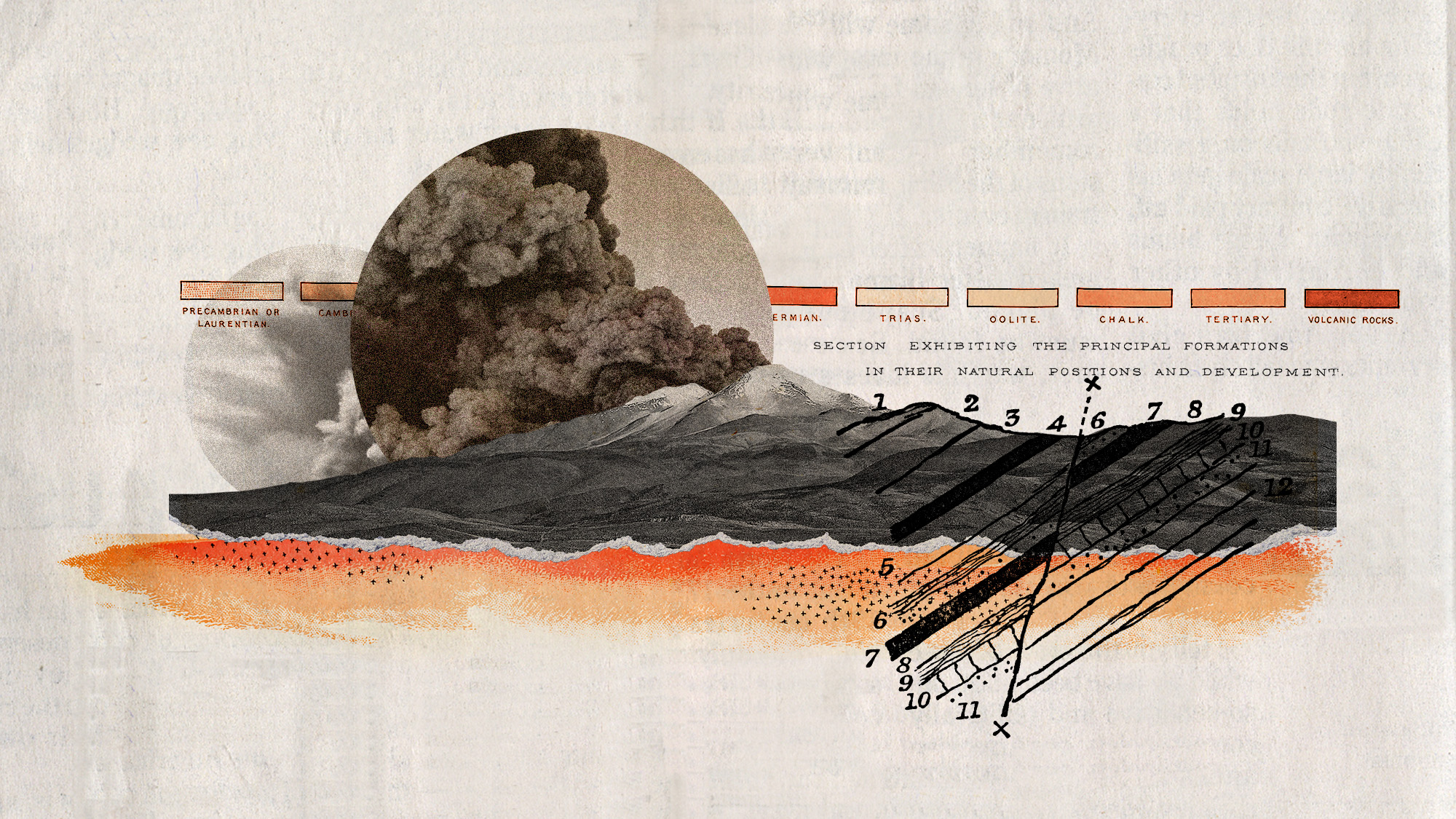The Colorado River war and the growing problem of less water
With water supply dwindling, the West must decide who gets what


A free daily email with the biggest news stories of the day – and the best features from TheWeek.com
You are now subscribed
Your newsletter sign-up was successful
The Colorado River is running low and the West is at odds over how to respond. Here's everything you need to know:
What's happening with the Colorado River?
The Colorado River provides water for a number of states including California, Arizona, Nevada, New Mexico, Colorado, Utah, and Wyoming. The amount of water in the river has slowly been dropping, prompting states to collaborate to reduce water usage by 30 percent of their river water allocation, per CNN.
The U.S. Bureau of Reclamation called on the affected states to come to an agreement on how to cut water usage to prevent the river's reservoirs, Lake Mead and Lake Powell, from becoming "dead pools," where the water level is too low to pump out to farms and cities. In response, six of the states released a letter proposing maximum basin-wide cuts of 3.1 million acre-feet per year, which would kick in if the reservoir levels drop dangerously low. Their recommendations distribute the cuts across every state and account for water lost to evaporation, which reduces water levels faster, writes Politico.
The Week
Escape your echo chamber. Get the facts behind the news, plus analysis from multiple perspectives.

Sign up for The Week's Free Newsletters
From our morning news briefing to a weekly Good News Newsletter, get the best of The Week delivered directly to your inbox.
From our morning news briefing to a weekly Good News Newsletter, get the best of The Week delivered directly to your inbox.
But California, which claimed that the six states' proposal disproportionately impacts California farmers, opted to release its own letter, prompting some conflict. In its competing recommendations, California proposed conserving between 1 million and nearly 2 million acre-feet of water, but failed to account for water lost to evaporation and during transportation, reports The Associated Press. Its recommendations also burden Arizona and Nevada with the biggest cuts, so much so that Phoenix and Las Vegas could be almost completely cut off from their water supply.
"The lack of a consensus and six states moving forward with an approach that does not harmonize with the law is troubling," said JB Hamby, the chair of the Colorado River Board for California. "It is everyone's best interest to avoid litigation, but being put into a situation like this where you have six states approaching things in this way raises the risk."
Why is California not cooperating?
The issue comes down to water rights. California asserts that it has senior rights to the water because of a compact made in 1922, which granted California farmers the largest share of river water. But in 1968, Arizona agreed to a junior water right in exchange for a system of canals called the Central Arizona Project. Because of this, Arizona has historically been first in line for water cuts, while California's allocation has remained unchanged.
With the Bureau of Reclamation now asking for a new, usage-reducing deal, California is siding with tradition and believes it should see the least amount of additional cuts under an updated proposal, while the remaining states believe future cuts should be distributed more evenly, especially if they would disproportionately impact some states more than others.
A free daily email with the biggest news stories of the day – and the best features from TheWeek.com
"I would not, even under a modeling scenario, agree or ask the federal government to model a scenario in which the Central Arizona Project goes to zero," Arizona's top water official, Tom Buschatzke, told CNN. "I will not do that. The implications would be pretty severe if CAP went to zero. Severe for tribes, severe for cities, severe for industries."
"We agree there needs to be reduced use in the Lower Basin, but that can't be done by just completely ignoring and sidestepping federal law," Hamby commented.
How is the disagreement being resolved?
In early April, the Biden administration proposed evenly cutting water allotments across the impacted states. In a draft analysis, the Interior Department considered three possible options to resolve the conflict: (1) do nothing, which would lead to the river running dry; (2) allocate usage based on the aforementioned water rights, which would leave California mostly unharmed but strain Nevada and Arizona; and (3) cut water evenly across all seven states.
Given the ongoing climate crisis, the Interior Department asserted that it would not make sense to make cuts based on historical water rights. Speaking with the Times, John Entsminger, the lead negotiator for Nevada, agreed with the department on that front: "We have 19th century laws, we have 20th century infrastructure, and we have 21st century climate," he said."And those three things don't fit very well together."
"I think this is a step towards facilitating what I hope is some consensus coming out of the basin, but it also shows at the end of the day, the [DOI] will do what's necessary and responsible to keep the system operating," remarked Deputy Interior Secretary Tommy Beaudreau. Per the Times, "the draft analysis did not formally endorse any option; a final analysis is expected this summer, and it could include still other approaches."
Meanwhile, the Supreme Court at the end of March heard arguments in a case regarding the right of the Navajo Nation to sue the federal government for help with water access. The tribe has claimed that the government is required to bolster its water needs as per an 1868 treaty, under which the U.S. agreed to provide the nation with a new "permanent home." The government, however, disagrees with the tribe's assertions. And at the center of the dispute is, of course, the Colorado River — an attorney for Arizona, Colorado, and Nevada says the tribe shouldn't be allowed to claim expanded rights over the river because it might affect "pre-existing agreements and ultimately mean less water available to those communities that have come to rely on it," ABC News summarizes.
Why must the West moderate its water usage?
For one thing, the West just saw its driest two decades in over a thousand years, per the Financial Times. And for another, water scarcity "is an increasing problem on every continent," and is likely to get worse as climate change becomes more intense, writes the United Nations. "The impacts of a changing climate are making water more unpredictable. Terrestrial water storage – the water held in soil, snow, and ice – is diminishing."
Is there a broader message here?
The battle for the Colorado River highlights a looming fight "about who should control this most precious and life-saving of commodities," writes Gillian Tett at the Financial Times. In the U.S., owning land means owning the water on that land, further complicating control of a precious resource, especially in times of short supply.
"When you look at how this river has shrunk, when you look at how much less water there is in the river than any of us ever thought – you have to say everyone who receives a benefit from this infrastructure needs to be willing to put some water on the table," said general manager of the Central Arizona Project and former Bureau of Reclamation Commissioner Brenda Burman, speaking with CNN.
Update April 20, 2023: This piece has been updated to include the DOI's draft analysis.
Devika Rao has worked as a staff writer at The Week since 2022, covering science, the environment, climate and business. She previously worked as a policy associate for a nonprofit organization advocating for environmental action from a business perspective.
-
 The Olympic timekeepers keeping the Games on track
The Olympic timekeepers keeping the Games on trackUnder the Radar Swiss watchmaking giant Omega has been at the finish line of every Olympic Games for nearly 100 years
-
 Will increasing tensions with Iran boil over into war?
Will increasing tensions with Iran boil over into war?Today’s Big Question President Donald Trump has recently been threatening the country
-
 Corruption: The spy sheikh and the president
Corruption: The spy sheikh and the presidentFeature Trump is at the center of another scandal
-
 How climate change is affecting Christmas
How climate change is affecting ChristmasThe Explainer There may be a slim chance of future white Christmases
-
 Why scientists are attempting nuclear fusion
Why scientists are attempting nuclear fusionThe Explainer Harnessing the reaction that powers the stars could offer a potentially unlimited source of carbon-free energy, and the race is hotting up
-
 Canyons under the Antarctic have deep impacts
Canyons under the Antarctic have deep impactsUnder the radar Submarine canyons could be affecting the climate more than previously thought
-
 NASA is moving away from tracking climate change
NASA is moving away from tracking climate changeThe Explainer Climate missions could be going dark
-
 What would happen to Earth if humans went extinct?
What would happen to Earth if humans went extinct?The Explainer Human extinction could potentially give rise to new species and climates
-
 Bacteria can turn plastic waste into a painkiller
Bacteria can turn plastic waste into a painkillerUnder the radar The process could be a solution to plastic pollution
-
 A zombie volcano is coming back to life, but there is no need to worry just yet
A zombie volcano is coming back to life, but there is no need to worry just yetUnder the radar Uturuncu's seismic activity is the result of a hydrothermal system
-
 'Bioelectric bacteria on steroids' could aid in pollutant cleanup and energy renewal
'Bioelectric bacteria on steroids' could aid in pollutant cleanup and energy renewalUnder the radar The new species is sparking hope for environmental efforts
